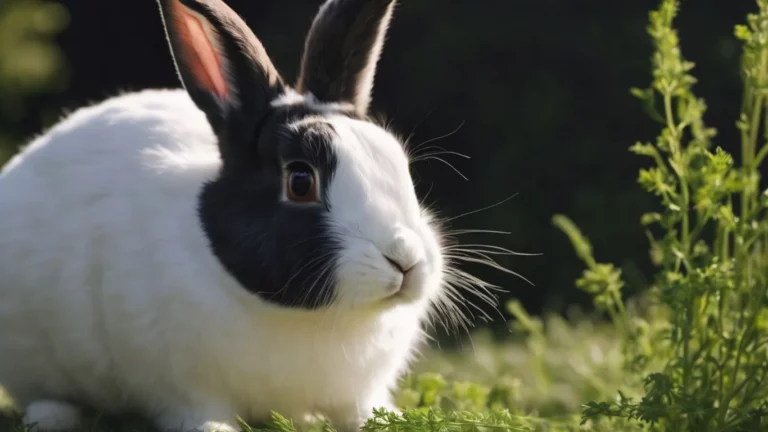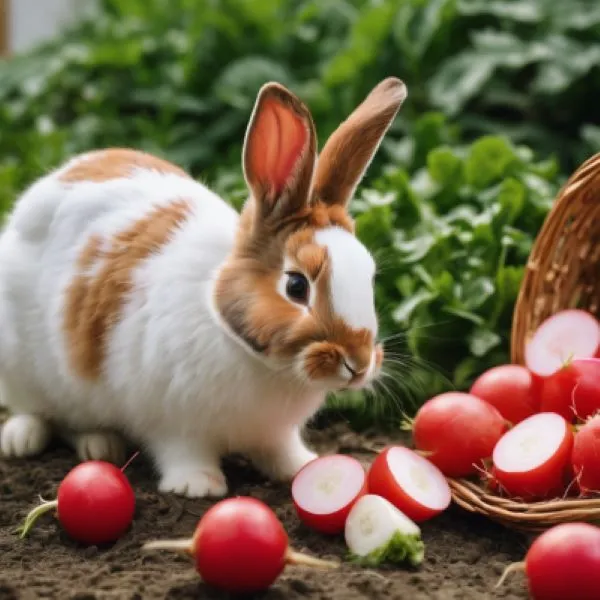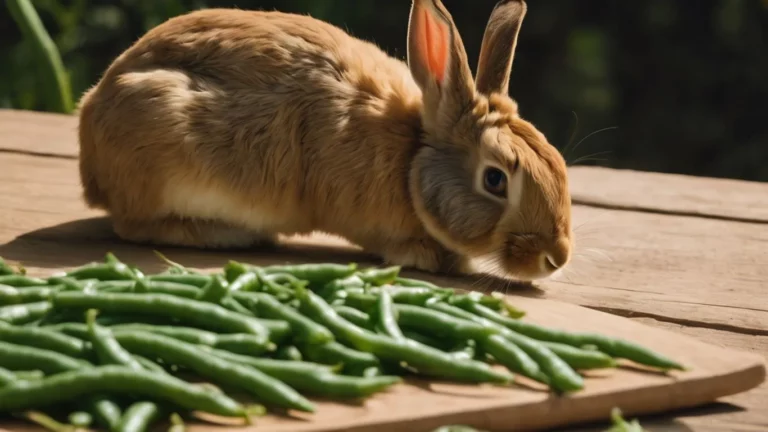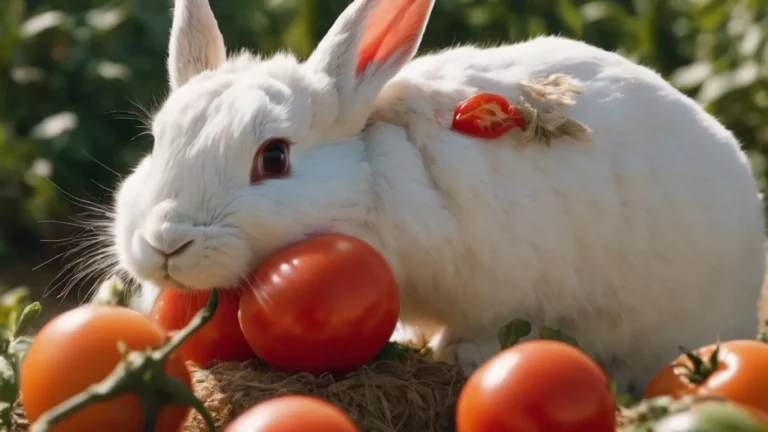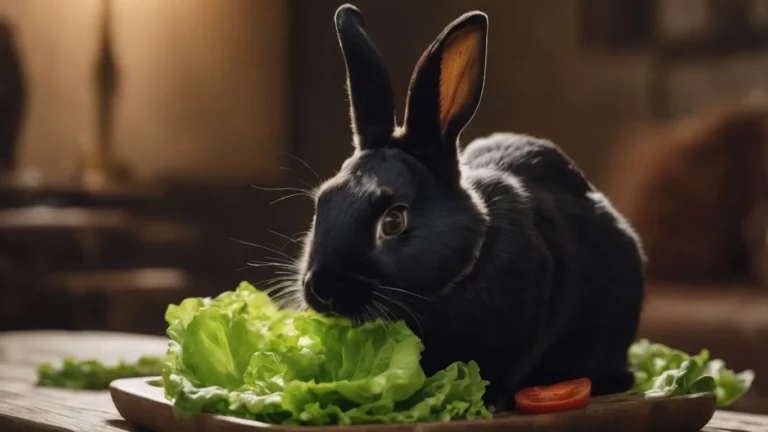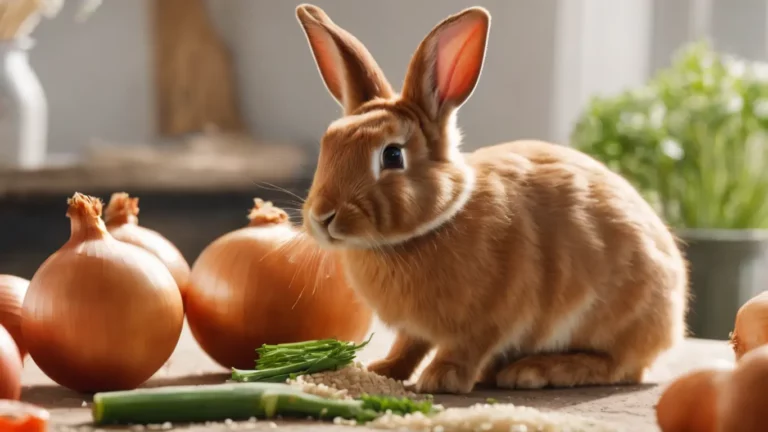Rabbits and Cantaloupe: A Safe and Healthy Snack? | Expert Advice
As a seasoned rabbit owner with over two decades of experience, I’ve had my fair share of questions about what to feed my furry companions. One common query that often arises, we will explore the safety of feeding cantaloupe to rabbits, including whether they can eat the rinds or peels, and even if the cantaloupe plants themselves are suitable for their consumption.
Is Cantaloupe Safe for Rabbits to Eat?
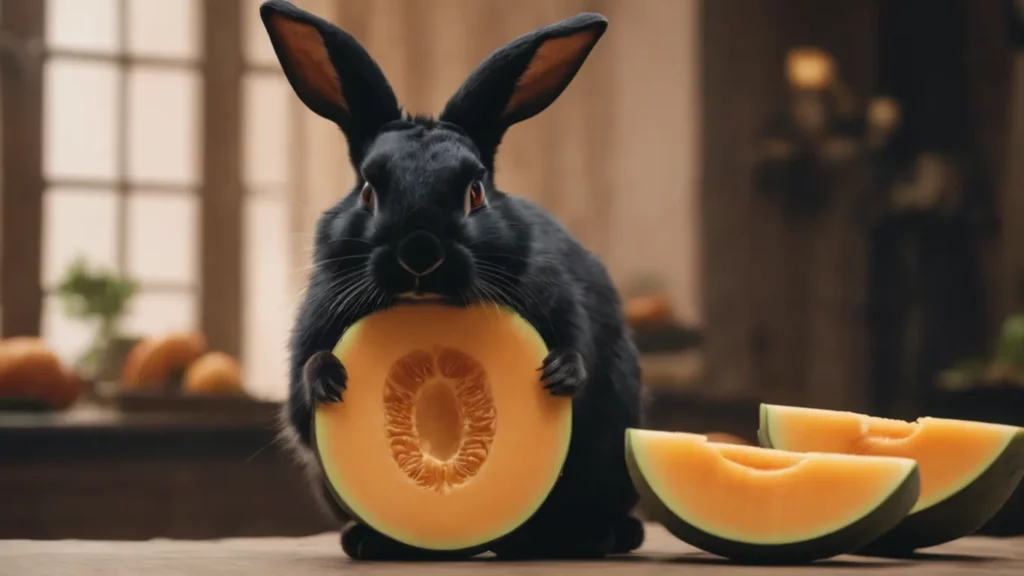
The short answer is yes, rabbits can eat cantaloupe, and they often relish the juicy, sweet flavor. Cantaloupe is a hydrating and nutritious fruit that can be a tasty addition to your rabbit’s feed.
Nutritional value of cantaloupe
| Nutrient | Amount per 100g |
|---|---|
| Calories | 34 kcal |
| Water Content | 89.8 grams |
| Protein | 0.84 grams |
| Carbohydrates | 8.16 grams |
| Dietary Fiber | 0.9 grams |
| Sugars | 8.16 grams |
| Fat | 0.19 grams |
| Vitamin A | 3382 IU |
| Vitamin C | 36.7 mg |
| Vitamin K | 2.5 mcg |
| Folate | 21 mcg |
| Potassium | 267 mg |
| Calcium | 9 mg |
| Phosphorus | 15 mg |
| Magnesium | 12 mg |
| Iron | 0.21 mg |
| Manganese | 0.041 mg |
| Copper | 0.041 mg |
| Zinc | 0.18 mg |
Please note that these values are approximate and can vary depending on the ripeness and variety of the cantaloupe. While cantaloupe can be a tasty and hydrating treat for rabbits, remember to offer it in moderation to maintain a balanced diet for your furry friends
Rabbits and Cantaloupe Seeds: Is It Safe?
Cantaloupe seeds are a topic of debate among rabbit owners. While small quantities of seeds are generally safe for rabbits, it’s essential to exercise caution:
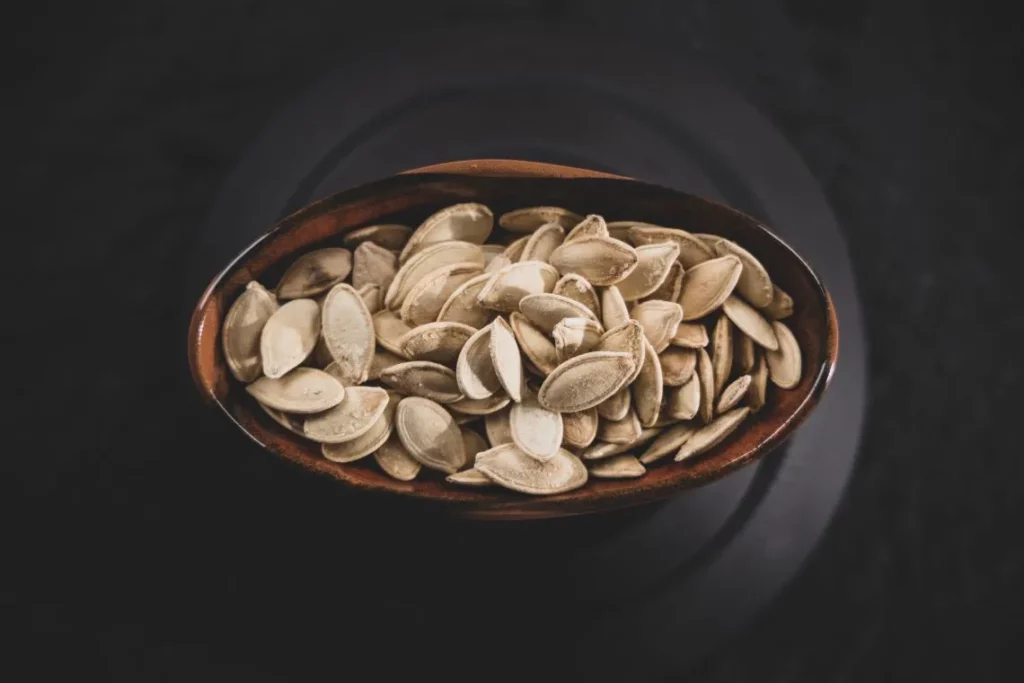
- Remove the Seeds: Ideally, you should remove the seeds from the cantaloupe before offering it to your rabbits. Although a few seeds here and there may not pose a significant risk, it’s best to err on the side of caution and avoid any potential choking hazards.
- Store-Bought vs. Home-Grown: Store-bought cantaloupes often have fewer seeds and smaller seeds compared to home-grown varieties. Still, it’s a good practice to remove the seeds or offer them in limited amounts.
- Monitor Your Rabbit: Always monitor your rabbit while they’re eating cantaloupe, especially if it contains seeds. If you notice any signs of discomfort or difficulty eating, it’s best to remove the seeds immediately.
What Parts of Cantaloupe Can Rabbits Eat?
Rabbits can safely enjoy the flesh (the orange part) of cantaloupe. However, as mentioned earlier, it’s crucial to remove the rind before offering it to your rabbits. The rind is tough and can be challenging for rabbits to chew and digest.
To prepare cantaloupe for your rabbits, follow these steps:
- Wash the cantaloupe thoroughly to remove any dirt or pesticides.
- Cut the cantaloupe into small, bite-sized pieces, ensuring you’ve removed the rind and seeds.
- Offer the flesh to your rabbits as an occasional treat.
Cantaloupe Flesh: A Refreshing Snack
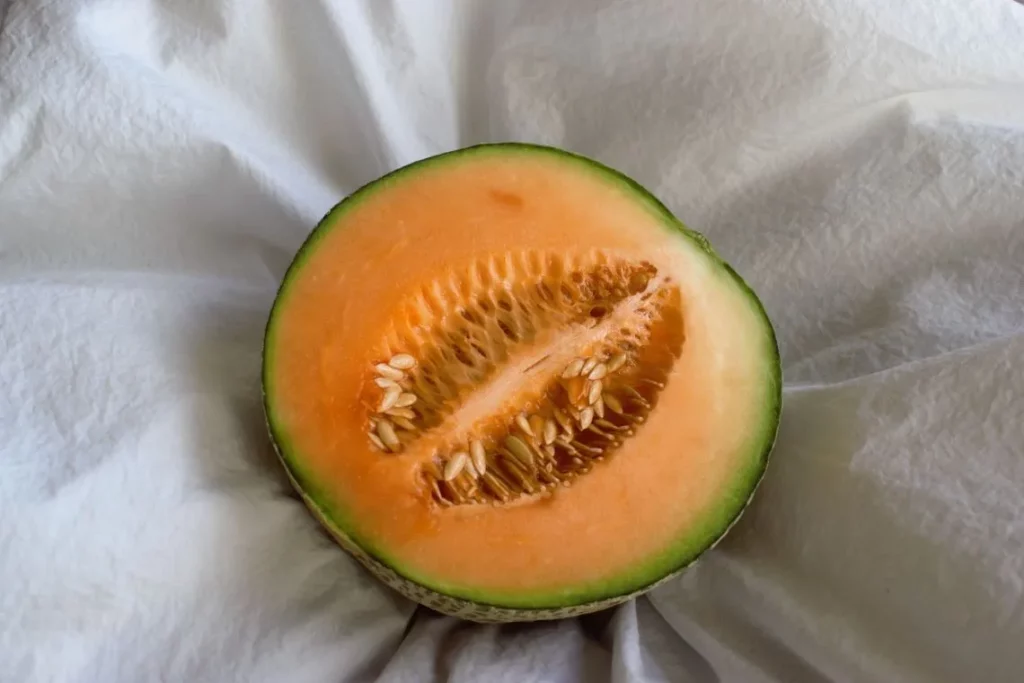
Rabbits can indeed enjoy the juicy, orange flesh of cantaloupe as an occasional treat. The flesh is rich in essential vitamins and minerals, such as vitamin A and vitamin C, which can contribute to your rabbit’s overall health. However, moderation is key, as excessive consumption of any fruit can lead to digestive issues.
| Rabbit Weight (kg) | Cantaloupe Portion (grams) |
|---|---|
| 1 kg | 10-15g |
| 2 kg | 20-30g |
| 3 kg | 30-45g |
| 4 kg | 40-60g |
| 5 kg | 50-75g |
To serve cantaloupe to your rabbit, make sure to follow these guidelines:
- Small Portions: Offer small, bite-sized pieces of cantaloupe. A tablespoon-sized serving is usually sufficient.
- Freshness: Always provide fresh cantaloupe to your rabbit and remove any uneaten portions promptly to prevent spoilage.
Cantaloupe Rinds or Peels: Best Avoided
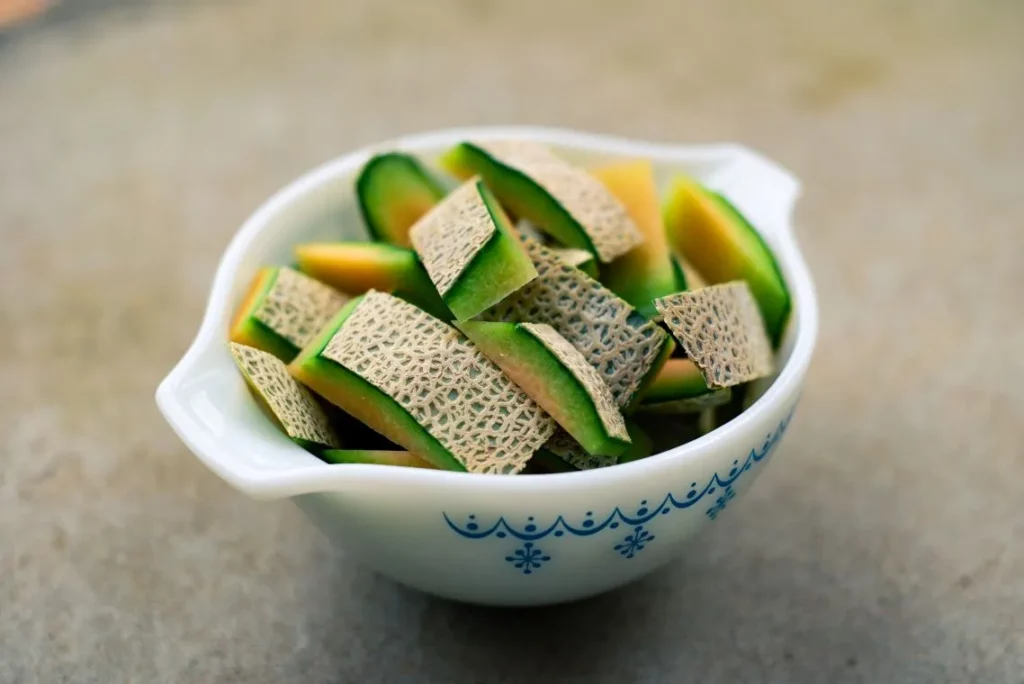
While the flesh of cantaloupe can be a delightful treat for rabbits, the same cannot be said for the rinds or peels. The tough, fibrous outer layer of cantaloupe is not easily digestible for rabbits and can lead to digestive problems if consumed. Therefore, it is advisable to avoid feeding your rabbit cantaloupe rinds or peels.
Cantaloupe Plants: A Cautionary Tale
Apart from the fruit itself, some rabbit owners may wonder whether the cantaloupe plants are safe for their pets to nibble on. It’s essential to exercise caution in this regard. Cantaloupe plants, like many other members of the Cucurbitaceae family, contain certain compounds that can be toxic to rabbits if ingested in large quantities. These compounds can cause gastrointestinal distress and should be avoided.
If you wish to provide your rabbit with some greenery, consider rabbit-safe plants like cilantro, parsley, or basil instead.
Conclusion
In summary, rabbits can enjoy the succulent flesh of cantaloupe as an occasional treat, but it should be offered in moderation. Cantaloupe rinds or peels are best avoided, as they can be tough to digest. Cantaloupe plants should also be approached with caution due to potential toxicity.
Remember that a balanced diet is essential for your rabbit’s well-being. The majority of their diet should consist of fresh hay, supplemented with a variety of rabbit-safe vegetables and fruits, including cantaloupe in small, occasional servings.
Always consult with your veterinarian for personalized advice on your rabbit’s diet, as individual dietary needs may vary. By providing your furry friend with a thoughtful and well-rounded diet, you’ll ensure they lead a happy and healthy life.


